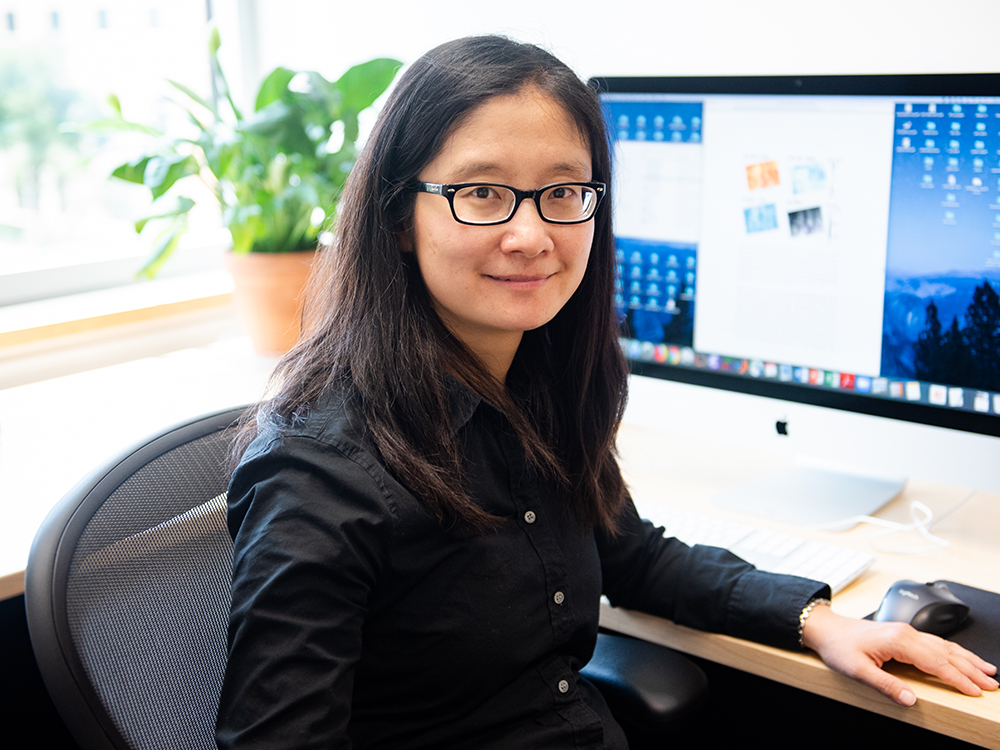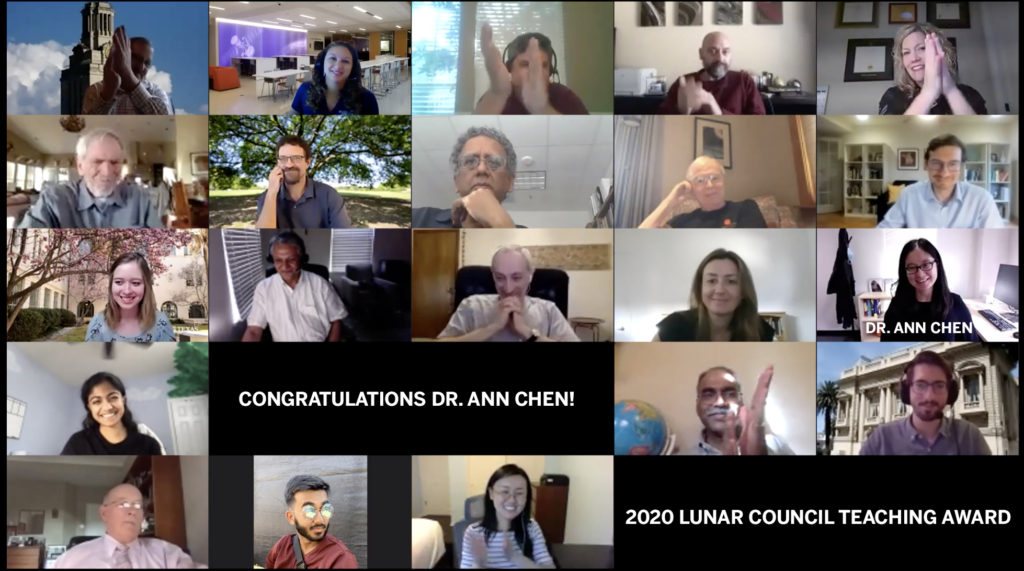
Ann Chen, an assistant professor in the Department of Aerospace Engineering and Engineering Mechanics (ASE/EM), was selected as the winner of the 2020 ASE/EM LUNAR Council Teaching Award. Established in 2015, the award is given annually to one Texas ASE/EM faculty member who has made a positive impact on students’ educational experience through superior teaching.
The award was established by the LUNAR (Leadership, Undergraduate, Networking and Recruitment) Council, a group of student leaders in Texas ASE/EM that was developed to create a dialogue between students and department faculty and staff. Each year LUNAR uses student feedback and numerical ratings to select the faculty recipient.
Chen teaches COE 301, Introduction to Computer Programming, a course required for all aerospace engineering (ASE) and computational engineering (COE) students. Most students take the course during their first year at UT.
According to LUNAR Council, Chen was selected because of her passion for teaching and for continuously demonstrating hard work, a warmth of spirit, concern for individual growth, and the ability to impart knowledge while challenging students to garner creative thought.
Students have expressed that, “Professor Chen is an extremely caring and supportive teacher” and “she is so patient, kind, helpful, and transparent.”
Chen also incorporates student feedback to continually improve her course.
“Dr. Chen firmly believes it is her job to help the student. She has asked the class directly how she has done her job, what we like about the class, and how she may change her teachings to better suit the class. She cares wholeheartedly and will do everything in her power to help all of her students succeed,” wrote another student.
Chen said she decided to apply for graduate school and pursue a career in academia because of her passion for teaching.
“Teaching allows me to share my knowledge and passion with our students. In particular, I love teaching COE 301 because it gives me an opportunity to know every ASE/COE undergraduate student,” Chen said. “I just want to say thank you to all the students who have taken my class. The warm support and constructive feedback I received from our students helped me get where I am today.”
Chen joined the Cockrell School in 2017. She leads the Radar Interferometry Group housed in the Center for Space Research. Her group focuses on the development of new satellites, and especially interferometric Synthetic Aperture Radar (InSAR) techniques, for studying natural and induced seismicity, groundwater resources, natural disasters, and permafrost hydrology and carbon storage. She received her Ph.D. at Stanford University.

Source: Cockrell School of Engineering
